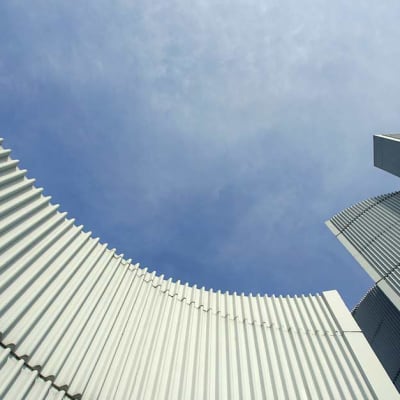MARKET REVIEW
Q1 2025 began like a roller coaster, with numerous developments unfolding. These included a reversal of the prolonged US growth and tech trade, and a value recovery led by Europe and emerging markets. Additionally, interest rates displayed divergent trends, with rates declining in the US and rising in the eurozone. Even the typically sluggish European region has provided reasons to invest in its future. These changes have led to rapidly evolving shifts in trends, favouring value-oriented trades. The level of uncertainty was most acute in March due to US-led trade tensions.
Key events during the quarter occurred in Europe and the US. Germany made a historic move by shifting away from its conservative and debt-averse fiscal policy to support increased defence spending and a special fund for infrastructure. In parallel, the EU announced the ReArm Europe plan, which could mobilise close to EUR 800 bn for defence spending. In the US, the Trump administration remained fully committed to its aggressive trade proposals, with potential widespread reciprocal tariffs to be announced in early April.
The equity market was therefore caught in significant cross-currents. In the US, investors worried about the negative implications of higher tariffs for the domestic consumer, growth, inflation, and the reaction function of monetary policy. On the European side, however, the mood was somewhat more constructive as cyclical equities benefited from the positive perspective of fiscal loosening (mostly banks and construction/defence-related sectors).
PERFORMANCE COMMENT
In March, the strategy performed broadly in line with its reference index. A slight benefit from the allocation effect was offset by stock selection. On the allocation side, our thematic underweight to Energy, Financials and Real Estate was a headwind, which was fully offset by our overweight in Consumer Staples. Given bearish sentiment in markets over the month, our detractors mainly came from more cyclical companies. Smurfit Westrock, for instance, fell about 20% peak to trough. Our analysis suggests that a significant downturn is now priced in, which presented us with an attractive opportunity. We therefore increased the position by 120bps to 380bps, and it is now the largest position in the Fund. Other detractors were Hugo Boss, down 18%, and Kion, down 15%, both giving back their recent gains on broader cyclical concerns. On the positive side, unsurprisingly, we find several defensive names, but interestingly our top performer is highly cyclical. Heidelberg, a material company, saw a significant move up (+15%) on the back of the German stimulus announcement. We were already concerned about this name’s valuation and therefore decided to exit on the upward move. A bit more than a third of proceeds were recycled into Kion (a detractor mentioned above), as we wanted to maintain exposure to German stimulus, but at a cheaper valuation point. Both Kion and Heidelberg have performed broadly similarly since we made the switch, but the trading impact has been positive, given the lower overall exposure. Among the other contributors, eBay and SEB were up 5% and 6%, respectively, given their defensive characteristics.
Zooming out to quarterly trends, the strategy lagged its reference index in 1Q25. This dynamic was mostly due to stock selection, while the sector allocation effect also detracted. Our stock selection was the weakest within Industrials and Information Technology, and was not sufficiently compensated by good selection within Consumer Discretionary and Materials. In the quarter, the worst detractors were Tetra Tech (engineering company for sustainable infrastructure, -27%), Zebra Technologies (solution provider for inventory management, -27%) and Clean Harbors (US hazardous waste management company, -14%). We rapidly trimmed our position in Tetra Tech in January, which cushioned its underperformance as the Trump administration cut funding for USAID (a key exposure), while for Zebra, the selloff presented us with a more attractive valuation for this long-term compounder – we added to the position. Clean Harbors sold off on a broadly weak tape across industrials, but given the already sizable position, we decided not to act on the cheaper valuation. On the positive side, Heidelberg was up 40%, powered by the German dynamics. We also saw the defensive profile of Republic Services (US waste management) delivering a solid positive return of around 20%. Finally, eBay was up 10%.
FUND ACTIVITY
In February, we reallocated capital away from Industrials towards Consumer Staples. This came in the form of taking profits on stocks that had outperformed in Industrials, while also cutting some risk in underperforming positions.
Therefore, coming into March, the Fund had a relatively defensive positioning. Indeed, driven by our bottom-up stock selection, the portfolio had a beta towards the low end of its historical profile. As the market sold off, this defensive positioning cushioned the impact on the Fund. However, as the spread of performance between defensive and cyclical stocks widened, our valuation framework directed us to decrease this defensiveness in favour of cyclicality. For instance, Sysco, a new name on which we recently took a 3% position, outperformed the market by 15% trough to peak. We took profits from names like this and recycled the proceeds into names like Smurfit Westrock.
Our new positions and exits in the month reflected the same pattern. On the defensive side, we exited Republic Services, Hera Spa and American Water Works, while on the cyclical side we added ATS and KION. As a result, turnover was higher than normal as we aimed to take advantage of market volatility and the significant mispricing that appeared.
OUTLOOK
In 2024, as the inflation battle seemed over, countries began to move towards more accommodative monetary policies, with rate cuts across key economies, except for Japan. The narrative of a soft landing is starting to take shape, favouring a broadening of the equity market performance into 2025, after having been concentrated in a narrow set of stocks since 2023, and with the flight away from Smid Caps (i.e. the strategy's battleground). We continue to observe attractive market anomalies. Looking ahead into 2025, we anticipate that a broader equity market performance should particularly benefit stocks that lagged in 2023-24, with a specific focus on small and mid-cap companies.
In this environment, we aim to complement our portfolio's barbell approach, which balances high-quality value and growth with idiosyncratic opportunities driven by company-specific catalysts. We have observed a rising interest and understanding among investors in circular economy solutions, which is supportive of growth and asset valuation. Currently, our areas of focus include performance and bio-based materials, advanced manufacturing and exposure to enhanced infrastructure that promotes a sustainable future, spanning from waste and recycling to water management and environmental integrity. Both the regulatory environment and economic factors are unveiling new business models within various dimensions of our Fund's universe.
FUND STRATEGY
The Circular Economy strategy aims to capitalise on investment opportunities arising from the shift of our economic model from linear to circular. This transition is centred on two main priorities: harnessing the power of nature and safeguarding natural capital.
The strategy's primary investment themes are closely tied to opportunities identified within four key revolutions associated with this transition: the circular bio-economy, resource efficiency, outcome-oriented economy and zero waste. Across these four revolutions, the thematic investment universe encompasses over 250 companies, carefully mapped across regions and sectors. As a result, it presents a well-diversified investment universe that offers ample depth and breadth for our stock selection process.






